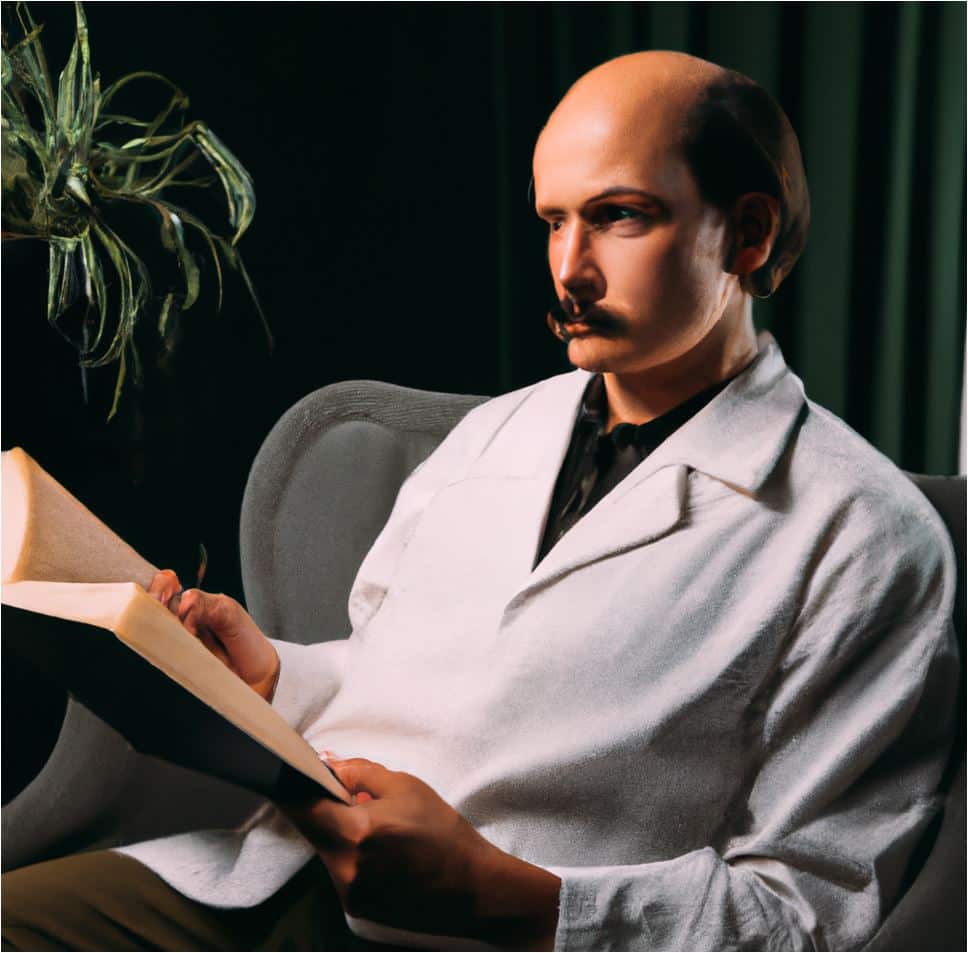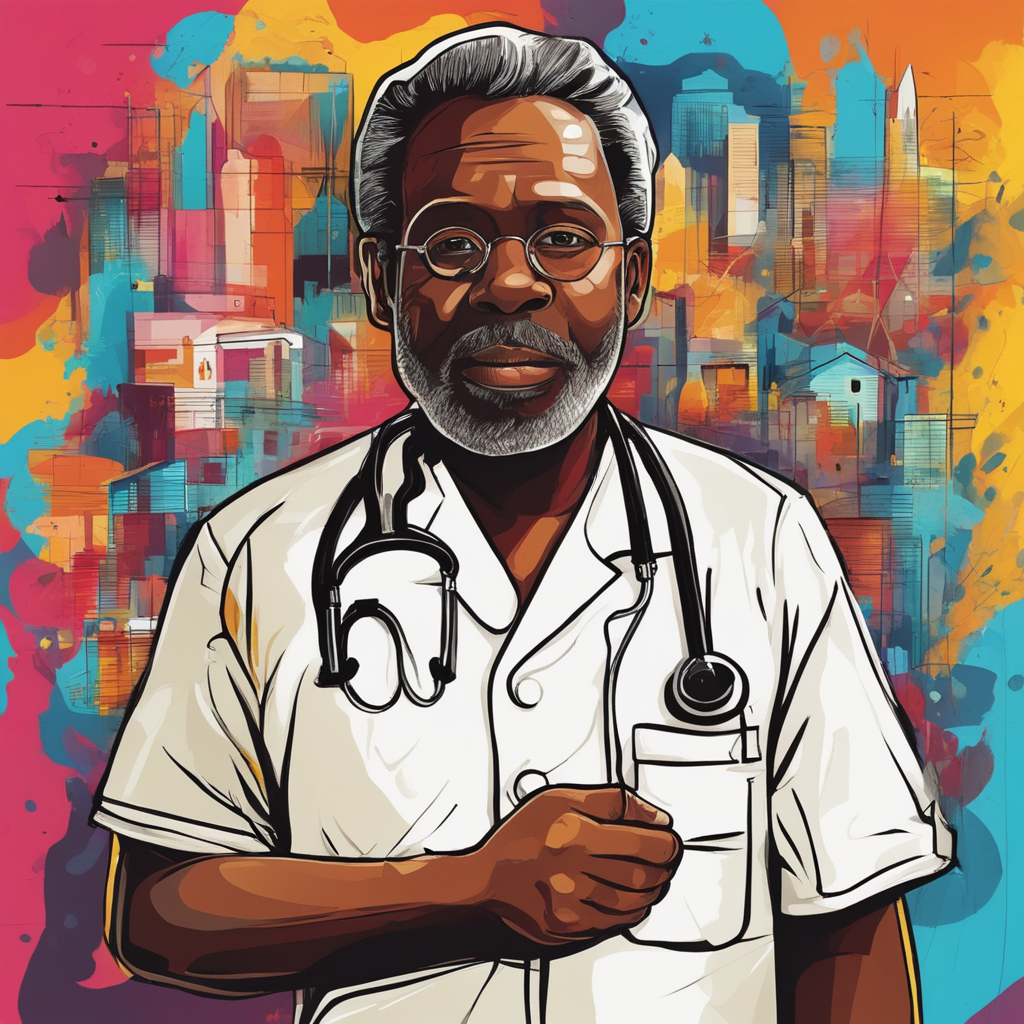William Osler is one of the most influential figures in the history of medicine. His quotes are famous for their wisdom and insight.
 Sir William Osler (Created with Open AI DALLE2)
Sir William Osler (Created with Open AI DALLE2)
Introduction
There’s nothing quite like a good medical quote. A well-crafted medical quote can be inspirational, thought-provoking, or even humorous. So why do we love quotes so much? Maybe it’s because they can encapsulate an entire message in just a few words. Or maybe it’s because they often come from people we admire and look up to.
Quotes can come from anyone, anywhere – famous people, everyday people, even fictional characters. Talking about famous physicians, William Osler is one of the most recognized and respected figures in the field of modern medicine.
Quotes about changes in modern medicine
Over the past few decades, there have been significant changes in the field of medicine. One of the most notable changes is the increasing use of technology in medical care. This has led to more accurate diagnoses and more effective treatments. In addition, there has been a shift towards more preventative care, which can help people stay healthy and avoid developing serious health problems.
Another change that has occurred is an increasing focus on evidence-based medicine. This means that doctors are basing their decisions on the best available scientific evidence, rather than relying on tradition or personal experience. This approach can help ensure that patients receive the most effective care possible.
In this series of quotes, William Osler shares his personal qualities and philosophies with the medical community, with most quotes coming from his classical work, aequanimitas.
“the times have changed, conditions of practice have altered and are altering rapidly, but when such a celebration takes as back to our origin in simpler days in ways, we find that the ideals which inspire them are ours today – ideals which are ever old, yet always fresh and new… “
“The killing vice of the young doctor is intellectual laziness”
“In these days of aggressive self-assertion, when the stress of competition is so keen and the desire to make the most of oneself so universal, it may seem a little old-fashioned to preach the necessity of this virtue, but I insist for its own sake, and for the sake of what it brings, that a due humility should take the place of honor on the list”
“The philosophies of one age have become the absurdities of the next, and the foolishness of yesterday has become the wisdom of tomorrow.”
“The greatest art is the concealment of art, and I must say that we of the medical profession excel in this respect “
“The average physician wastes 50 to 60% of his time in going from place to place or in the repetition of an instructive details of practice”
“There are two avenues to success in practice; the one abroad and much-traveled road, the via publica, smooth and easy, well-paved, without ruts, along which the average doctor can jog along behind common sense and civility, by far the best team of their kind; the other, the via medica straight and narrow way, but very rough, along which many starts, full of life, driving, not a team but science, and single harness”.
“Let it be also an ambition to add you mite to the store of medical knowledge. Everyone can do something; the routine of general practice affords many cases with reporting or commenting upon”
Quotes about postgraduate medical education
There are many reasons why postgraduate training in medicine is important. First and foremost, it helps to ensure that doctors are able to keep up with the latest medical advances and developments. Additionally, postgraduate training can also help doctors to refine their skills and knowledge, and to become more effective practitioners. Finally, postgraduate training can also provide opportunities for networking and professional development. In sum, postgraduate training in medicine is essential for ensuring that doctors are able to provide the best possible care to their patients. In this next series of quotes by Osler, he shares important insights into the importance of clinicians furthering their education (emphasis on specialists).
“There are, in truth, no specialties in medicine, since to know fully many of the most important diseases a man must be familiar with their manifestations in many organs”
“Specialism is not, however, without many disadvantages. A radical error at the onset is the failure to recognize that the results of specialized observation at best only partial truths, which required to be correlated with facts obtained by wider study. The various organs, the diseases of which are subdivided for treatment, and not isolated, but complex parts of a complex whole, and every day’s experience brings home the truth of the saying, ‘when one member suffers, all the members suffer with it ‘”
“The incessant concentration on one subject, however interesting, tethers a man’s mind in a narrow field”
“It is almost unnecessary to remark that the public, in which we live and move, has not been slow to recognize the advantage of a division of labor in the field of medicine. The desire for expert knowledge is, however, also general that there is a grave danger lest the family doctor should become, in some places, a relic of the past”
“How comforting to the general practitioner is the wise counsel of the specialist. We take him a case that has puzzled and annoyed us, the diagnosis of which is uncertain, and we consult in vain the unwritten records of our experience in the printed records of all books. He labels it in a few minutes as a coleopterist would beetle, and we feel grateful for the accuracy of his information and happy in possession of the label.”
“In others the chief value of the consultation has been in a reasonable talk with the patient about his condition, with assurance that there was nothing serious, and general advice as to mode of life and diet.”
“I wish there were another term to designate the wide field of medical practice which remains after the separation of surgery, midwifery, and gynecology. Not itself a specialty, it’s cultivators, cannot be called specialists, but better without reproach the good old name physician, in contradistinction to general practitioners, surgeons, obstetricians, and gynecologists… I would like to emphasize the fact that the student of internal medicine cannot be a specialist.”
“The chief function of the consultant is to make a rectal examination that you have omitted.”
“Seeing the most severe cases, the experience of the consultant is apt to be misleading”
“the dangers do not come to a strong man in a specialty, but to the weak brother who seeks it in an easier field in which specious garrulity and mechanical dexterity may take the place of solid knowledge. All goes well when the man is larger than a specialty and controls it, but when the specialty runs away with a man, there is disaster, and topsy-turvy condition, which in every branch, has done incalculable injury”
Finally, Osler points out the importance of traveling and expanding one’s knowledge as a medical doctor. For clinicians interested in furthering their education outside their countries of origin, this quote by Osler emphasizes this time-tested truth. Read this blog post about postgraduate training in endocrinology.
“The great Republic of Medicine knows and has known no national boundaries, and postgraduate study in other lands gives the broad mental outlook and that freedom from the trammels of local prejudice which have ever characterized the true physician.”
Quotes about Medical Record Keeping
While electronic medical records (EMRs) offer many benefits, they also pose some challenges for physicians. One of the biggest challenges is simply getting used to using the EMR system. Many physicians are accustomed to paper charts and may find it difficult to transition to an electronic system. In addition, EMRs can be time-consuming to use, as doctors must enter data into the system during patient visits. This can add time to already busy schedules.
Another challenge with EMRs is that they can sometimes contain inaccurate or outdated information. This can be a problem if a doctor relies on the EMR to make decisions about a patient’s care. Additionally, EMRs can be challenging to keep up to date, as new information is constantly being added. This can be a particular problem in large practices with multiple physicians.
In this next series of quotes, Osler examines the importance of note-taking, decades before the advent of electronic medical records. Osler emphasizes the challenges of maintaining the integrity of the medical record.
“I wish I had time to speak of the value of note-taking. You can do nothing as a student in practice without it. Carry a small notebook which will fit into your waistcoat pocket, and never ask a new patient a question without notebook and pencil in hand”
“Don’t trust your memory. Make notes. Write down your observations”
“Record that which you have seen; make a note of the time; do not wait!”
“If you have the good fortune to command a large clinic, remember that one of your chief duties is the tabulation and analysis of the carefully recorded experience”
“Upon young men (and women due to changes in modern medical education) just starting I would like to urge particularly to take careful notes of their cases, and to study each individual patient intelligently. Experience in any disease is not a measure of the number of cases seen; it is not a matter of mere accretion, of the adding fact to fact, this is knowledge.”
Endocrinology quotes by William Osler
Endocrine practice faces many challenges. One of the most pressing is the increasing prevalence of obesity and type 2 diabetes. These conditions are major risk factors for a number of other chronic diseases, including heart disease, stroke, and cancer.
In addition, the aging of the population is leading to an increase in the number of people with age-related conditions such as osteoporosis and hormone-related cancers. And, as more is learned about the complex interactions between hormones and other systems in the body, there is an increasing need for specialized care. Quotes by William Osler targeted endocrine diseases will be highlighted next.
“the glutton digs his own grave with his teeth”
“Lessen the intake. We all eat too much, and in no age was the saying more true that ‘the platter kills more than the sword’”
“obesity is a condition for which we are consulted in three groups of cases. First, they are persons of both sexes who have an hereditary tendency to obesity. Secondly, there is an increasing number of cases of obesity in children particularly in the United States, associated with bad habits and eating, and usually carelessness and lack of control on the part of the parents. Thirdly, and most frequently, we are consulted by women of the middle period of life, who are troubled with the overgrowth of fat… Too much food and too little exercise are largely responsible in about one half of the cases, but in the hereditary ones these factors do not prevail, and this is the point to be borne in mind very carefully the question of treatment.”
“Our art has made no more brilliant advance than in the cure of these disorders due to disturbed function of the thyroid gland. That we can today rescue children otherwise doomed to the helpless idiocy – that we can restore to life the hopeless victims of myxedema – is a triumph of experimental medicine…within six weeks, a poor, feeble-minded, toad-like caricature of humanity may be restored to mental and bodily health”
“No type of human transformation is more distressing to look at than an aggravated case of cretinism”
Quotes about making the correct diagnosis
Making the correct medical diagnosis is essential to providing effective treatment. To do this, doctors need to consider all of the patient’s symptoms and test results. They also need to be aware of the latest advances in medical knowledge so that they can make the most accurate diagnosis possible. This next series series of quotes by Osler outlines useful diagnostic pearls that every clinician should possess.
“Listen to the patient, he’s telling you the diagnosis”
“But the sick man is before you. How shall you proceeding your examination? He represents a complicated experience or problem in the first thing to do is to collect all the facts of the case”
“To be able to recognize abnormal states, you must bring a full knowledge of the normal situation of the organs, their physical signs, and the characters in composition of the excretions. Without these standards of comparison, you cannot make the first step in the examination of your patient.”
“We, the doctors are so fallible, ever be set with the common fatal facility reaching conclusions from superficial observations, and constantly misled by the ease with which our minds fall into the ruts of one or two experiences.”
“In taking histories for each line of thought; ask no leading questions; never suggest. Give the patient’s own words in the complaint”
“The four points of the medical student’s compass of inspection, palpation, percussion, and auscultation”
“There is a tendency among young men about hospitals to study the cases, not patients, and in the interest, they take in the disease lose sight of the individual. Strive against this”
“Half of us are blind, few of us feel, and we are all deaf”
“When listening to heart murmurs you must tuneup your auditory hair cells and flatten out your Pacinian corpuscles”
“One element must always be taken into account in prognosis and that is the personal equation of the patient. No two cases of the same disease are ever alike; the constitution of the person, his individuality, stamps each case with certain peculiarities”
Reference
Osler W. The Quotable Osler. ACP Press; 2008.
Disclaimer
The opinions expressed here represent the views of a practicing hormone specialist (endocrinologist) and must not substitute the advice of your health care provider. This blog post is written for a non-medical audience interested in learning more about hormonal disorders. The author has no commercial conflicts of interest to declare. Also, read our privacy policy.
Kindly Let Us Know If This Was helpful? Thank You!



